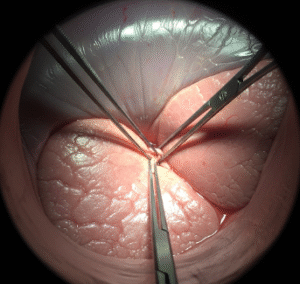Overview
Kleptomania is a psychological disorder characterized by an irresistible urge to steal items that are not needed for personal use or monetary value. It is classified as an impulse control disorder and often leads to distress, guilt, and social or legal consequences. Despite the compulsive nature of the behavior, individuals with kleptomania usually experience tension before stealing and relief or gratification afterward. In Korea, mental health professionals offer specialized diagnosis, therapy, and medication management to help patients regain control and improve their quality of life.
What Is Kleptomania?
Kleptomania is a chronic impulse control disorder where individuals repeatedly fail to resist the impulse to steal objects. Unlike typical theft motivated by financial gain or need, kleptomania-driven stealing is impulsive and often unrelated to the item’s value. It is distinguished from ordinary theft by the compulsive nature and emotional drive behind the behavior. The disorder can significantly impact personal relationships, employment, and legal standing.
Symptoms
Common symptoms and signs of kleptomania include:
- Recurrent episodes of stealing items not needed for personal use or financial gain
- Increasing sense of tension or arousal before the theft
- Feelings of pleasure, gratification, or relief during or immediately after stealing
- Guilt, shame, or remorse following the act
- Difficulty resisting the impulse despite negative consequences
- Secretive behavior and attempts to conceal thefts
- Possible co-occurrence with other mental health disorders such as anxiety, depression, or substance abuse
Causes
The exact cause of kleptomania is not fully understood, but several factors contribute:
- Dysfunction in brain circuits related to impulse control, particularly in the frontal lobe and limbic system
- Imbalances in neurotransmitters such as serotonin and dopamine affecting mood and behavior regulation
- Genetic predisposition and family history of impulse control or mood disorders
- Environmental stressors or traumatic experiences triggering compulsive behaviors
- Coexisting psychiatric conditions such as obsessive-compulsive disorder (OCD), bipolar disorder, or eating disorders
Risk Factors
- Family history of impulse control or mood disorders
- Personal or family history of substance abuse
- History of trauma or abuse
- Presence of other psychiatric disorders, especially anxiety and mood disorders
- Adolescence and young adulthood are common periods for onset
Complications
- Legal problems including arrests and criminal charges
- Relationship difficulties and social isolation
- Financial problems due to theft or legal fees
- Emotional distress, depression, and anxiety
- Potential for co-occurring substance abuse and other addictive behaviors
- Difficulty maintaining employment or academic performance
Prevention
- Early recognition of impulse control problems and seeking mental health support
- Stress management techniques and healthy coping mechanisms
- Avoidance of high-risk situations or environments that trigger stealing urges
- Supportive family and social networks encouraging treatment adherence
- Treatment of coexisting psychiatric conditions to reduce impulsivity
Treatment Options in Korea
Korean mental health services provide comprehensive treatment plans for kleptomania, combining psychotherapy and pharmacotherapy:
- Cognitive Behavioral Therapy (CBT):
- Focuses on identifying triggers, developing coping strategies, and changing thought patterns related to stealing behavior.
- Techniques include impulse control training, stress management, and relapse prevention.
- Medications:
- Selective serotonin reuptake inhibitors (SSRIs) to improve impulse control and reduce anxiety or depression.
- Mood stabilizers or anticonvulsants in cases with coexisting mood disorders.
- Naltrexone, an opioid antagonist, has shown promise in reducing compulsive urges.
- Support Groups and Counseling:
- Group therapy to share experiences and foster accountability.
- Family counseling to address interpersonal issues and build supportive environments.
- Multidisciplinary Approach:
- Coordination between psychiatrists, psychologists, and social workers ensures holistic care.
- Emphasis on patient education and long-term follow-up to prevent relapse.
Korean clinicians are experienced in culturally sensitive approaches that address stigma and encourage patients to seek help early, improving outcomes for kleptomania sufferers.













